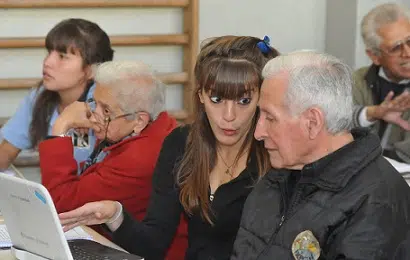
Andragogy combines elements of psychology, pedagogy and philosophy.
The discipline focused on adult education is called andragogy . It is a series of techniques that are aimed at the teaching and learning process of individuals who are already adults .
Psychology, sociology and philosophy
While pedagogy usually focuses on children, andragogy focuses on adults. It is important to keep in mind that human beings learn throughout their lives, not just in childhood.
Andragogy, in this context, addresses psychological, sociological and philosophical issues linked to the formation of adults. Since the physical and psychological characteristics of adults and children are different, andragogy considers these particularities to optimize the development of training .
Andragogy, in short, is part of the educational sciences. Andragogical processes promote reasoning, invite you to compare individual knowledge with group knowledge and encourage constructive debate.
Particularities of adults
It is essential to know how older people learn so that teachers can carry out their task successfully. That is why andragogy is very important for the design of classes and courses , as well as when teaching lessons .
Adults, for example, already have multiple experiences and make personal judgments. The educator must contemplate this reality within the framework of the bond forged through teaching .
Another factor to analyze is that adults tend to want to apply new knowledge immediately and that said learning brings them benefits . Andragogy pays attention to these interests and motivations .
History of andragogy
The first use of the word andragogy was by the German teacher Alexander Kapp in 1833, to talk about the educational practice that the Greek philosopher Plato used when dealing with young and adult students. Nor can we fail to mention the American Eduard C. Lindeman , another important name in this field, who made invaluable contributions in the field of education of the elderly and in the so-called informal education , a concept that frames the training that we can receive outside the traditional educational system .
Lindeman was the first in his country to include this word in his written works. According to his work, he recognizes a series of basic principles that we should apply to understand adult education and ensure that they learn concepts successfully:
* for an adult to feel the motivation to learn, they must feel a need that drives them to do so;
* andragogy professionals must focus teaching on life itself to enhance said motivation ;
* Adults tend to want to become independent from their teachers much more often than children, to put into practice what they have learned in their own way as soon as possible;
* In a group of adults it is expected that there will be more diversity than in one of children, since authenticity increases with age.
Throughout the 1980s and 1990s, andragogy was very influential in both Lifelong and Continuing Education, without leaving aside Open and Distance Education. The elements that he took from pedagogy and psychology are worth highlighting.

Children and adults approach learning in different ways.
The father of andragogy
In this framework it is necessary to mention the work of the American teacher Malcolm Shepherd Knowles , who treated andragogy as an art and a science at the same time. Furthermore, he was convinced that it was necessary to help students in the process, allowing them to have an active role in their own learning .
It was Knowles who pointed out that children and adults approach learning in different ways , and that is why he proposed different processes for tutors. He was the author of several books between the 1950s and the late 1980s, where he discussed topics such as leadership, pedagogy, study in adulthood, and more.
